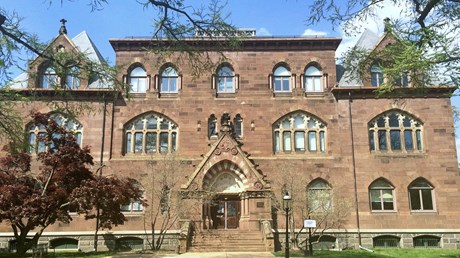Former winner explains how the seminary honor that once brought the Reformed community together is now splitting it.

A large number of the 300 who attended the 1998 Stone Lectures at Princeton Theological Seminary were “Kuyperians.”
On the 100th anniversary of Abraham Kuyper’s delivering those lectures in 1898, the seminary chose to commemorate the occasion by inviting Yale University’s Nicholas Wolterstorff— a longtime advocate for Kuyper’s thought—to offer that year’s Stone lecture.
It was also the occasion for presenting the inaugural Kuyper Prize—funded by the philanthropists Rimmer and Ruth DeVries, themselves avid Kuyperians—to the Dutch historian and Kuyper biographer George Puchinger.
The Kuyper Prize is much in the news right now. Having designated Tim Keller as this year’s recipient, Princeton leaders announced last week that they are reversing that decision. Princeton’s president acted in response to protests from students regarding Keller’s lack of support for both the ordination of women and LGBTQ causes.
Modeling a marvelous graciousness, Keller has agreed to keep the commitment to give the lead-off lecture for this year’s Kuyper conference, even though there will be no award ceremony.
When those yearly Kuyper events began at Princeton in 1998, many of us in the Kuyperian movement—both in the United States and abroad—were thrilled that this great seminary was not only honoring our hero but also acknowledging that the stream of Calvinist thought he represented continues to be a vital presence within the broad Reformed community.
The news about reversing the decision to honor Keller has spread rapidly within our movement in the past few days, typically with expressions of consternation and feelings of betrayal.
While many of us disagree …
Source: Christianity Today Most Read